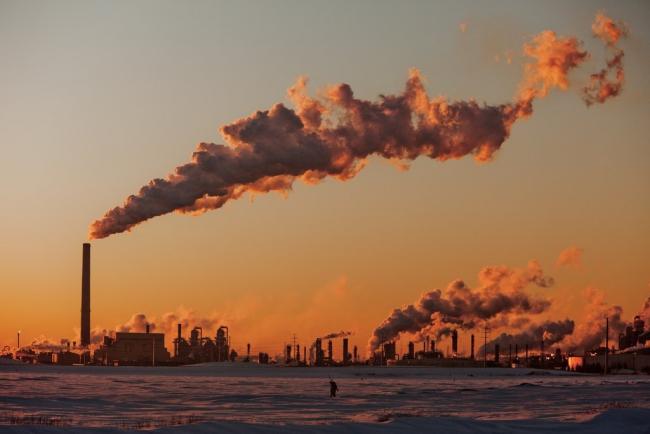Articles Menu

August 30th 2021
The lobby group representing Canada’s oil and gas industry has unveiled its list of asks for the 2021 federal election.
The Canadian Association of Petroleum Producers (CAPP) says the platform, released Aug. 24, demonstrates the industry’s desire to transition to a lower-carbon economy, asking for a variety of federal supports to implement cleaner technologies. Environmentalists, however, say it promotes a business-as-usual approach to the climate crisis.
“These asks just make (our climate) goals completely unreachable if governments cave into them,” said Julia Levin of Environmental Defence, the senior manager of the charity’s climate and energy program.
CAPP is an extraordinarily well-resourced lobby group, representing energy companies that produce about 80 per cent of the country’s oil and gas. It released a similar platform ahead of the 2019 federal election, accompanied by a data-collection effort that was the subject of a Canada’s National Observer investigation. As a groundswell of movement towards climate policy has taken hold in the past few years, CAPP has upped its election efforts on the provincial level as well, running a significant ground campaign in the 2018 Ontario election.
The group’s 2021 federal election platform doesn’t take a position on parties or candidates. Instead, it outlines what oil and gas companies would like to see from whichever party forms government — and what it would like voters to ask of their elected officials.
CAPP didn’t respond to a request for comment from Canada’s National Observer. But in a statement accompanying the platform, the group’s president and CEO Tim McMillan said the oil and gas industry wants to see the federal government invest in helping the industry develop and implement clean technology.
“It is crucially important for the incoming federal government to make policy decisions that position Canada for success in an ultra-competitive international investment market,” McMillan said in the statement.
In the platform, CAPP argues that forecasts from the International Energy Agency (IEA) show demand for oil and gas will continue for decades and that the industry could help drive Canada’s economic recovery from COVID-19. (Earlier this year, the IEA also recommended governments not invest in any new fossil fuel infrastructure if they want to meet climate targets.)
Industry can continue to extract fossil fuels — it points to Atlantic Canada as a target for more oil exploration. The industry could offset greenhouse gas emissions using technology like carbon capture and storage, the platform reads. It also argues that Canadian liquefied natural gas could be used to displace more emissions-intensive fuels like coal in the developing world, a theory that has been disputed by some experts.
Richard Masson, a former oilsands policy adviser to the Alberta government and an executive fellow at the University of Calgary’s School of Public Policy, said the industry is trying to show that it’s viable, particularly if it can identify resources on the East Coast that could spur much-wanted investment.
“The projects that have been trying to move forward have been really starved for capital,” Masson said. “Some of the existing ones have been challenged… If we don't move forward on that sometime soon, we're going to start to lose the talent, the resources that we need to develop it, and it may be very difficult to get back.”
.@oilgascanada says its platform, released Aug. 24, demonstrates the industry’s desire to transition to a lower-carbon economy. Environmentalists, however, say it promotes a business-as-usual approach to the climate crisis. #elxn44 #cdnpoli #CAPP - Twitter
Masson also said the industry is asking for support to decarbonize because it understands the importance of transitioning. It’s just a question of pace, he added.
“The world gave us a task — decarbonize oil,” Masson said. “We're a bunch of very focused people, engineers in particular, and that's what we're working on. And so we see the task. We accept the challenge, and we're going for it.”
Levin said it’s the pace that matters and that arguments for extracting and using fossil fuels are a distraction from real climate solutions.
“They only care about prolonging society's dependence on fossil fuels,” she said of the oil and gas industry.
“Carbon capture is just like it's a licence to pollute. That won't actually lead to anything but meaningless emissions reductions that are so incremental while locking us into decades of fossil fuel infrastructure.”
With the spotlight focused on reconciliation after the discovery of over 1,000 unmarked graves at former residential school sites this spring and summer, CAPP’s platform also pitches oil and gas as a way to build relationships with Indigenous communities.
“Many Indigenous communities see resource development as a pathway to economic reconciliation, opportunity and a means to end poverty in their communities,” the platform reads.
The document notes that Indigenous people have a diversity of opinions about resource extraction, but does not mention the communities that have advocated against pipelines in their territories and the expansion of the oilsands.
Last year, CAPP also lobbied the federal government to delay implementation of the United Nations Declaration for the Rights of Indigenous Peoples (UNDRIP), a landmark international document that protects the Indigenous right to self-government and numerous human rights, including a measure that requires Indigenous consent for resource development projects. CAPP didn’t respond to a question about how its push for reconciliation meshes with its lobbying around UNDRIP.
[Top photo: An oilsands facility near Fort McMurray, Alta., in 2012. Photo by Kris Krüg / Flickr]